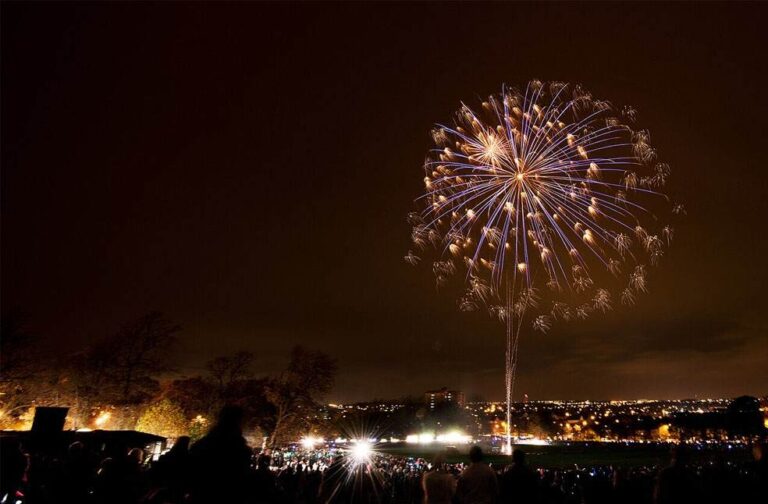Edinburgh: On Bonfire Night, Edinburgh experienced significant disorder, with youths engaging in violent activities that included launching fireworks and petrol bombs at police and emergency responders.
Around 100 young people gathered in areas like Sighthill, Niddrie, Gracemount and Gilmerton areas, throwing pyrotechnics at police, forcing officers in riot gear to take defensive positions.
Scotland Police reported multiple injuries among officers, and firefighters also faced assaults with fireworks and bricks during their shifts.
This chaotic evening is part of a recurring issue that Scottish authorities have tried to mitigate with initiatives like Operation Moonbeam, aimed at controlling firework-related violence.
Police were given extra stop and search powers in certain areas following “intelligence” about planned disorder and firework-related crime.
Superintendent Neil Wilson said that, “We are currently responding to incidents of disorder involving large groups of youths throwing a range of objects, including fireworks, bricks and bottles, across Edinburgh.”
We are utilising air support in Edinburgh as part of Operation Moonbeam.
The helicopter is just one of the specialist resources supporting local policing teams in keeping people safe and responding to firework offences.
Please continue to report any incidents. pic.twitter.com/iId5dj7bME
— Police Scotland Edinburgh (@PSOSEdinburgh) November 5, 2024
In response to the Bonfire Night disorder, a helicopter was deployed through Operation Moonbeam to assist police in addressing fireworks-related crimes in Edinburgh.
Due to safety risks, Lothian Buses suspended all routes through Niddrie, an area that has seen repeated disturbances, including on October 31, when fireworks and bricks were thrown at police and public transport vehicles.
In Glasgow, officers recently confiscated a substantial number of fireworks from a van in Drumchapel, which were allegedly being sold to the public, including minors. Isolated incidents of fire appliances being targeted in the city have also been reported, though no injuries were confirmed.
To mitigate the impact of fireworks, Scotland’s first fireworks control zones (FCZs) were introduced from November 1 to 10 in select areas of Edinburgh and Glasgow. Violating the FCZ rules, such as setting off fireworks within these zones, could result in fines up to £5,000 and a maximum jail sentence of six months.
In contrast, the famous Bonfire Night festivities in Lewes, East Sussex, proceeded peacefully. Known for burning effigies of well-known figures, this year’s event included effigies of former Post Office CEO Paula Vennells and Reform UK leader Nigel Farage. Despite previous warnings about potential overcrowding, the night remained incident-free.
Authorities are continuing investigations, with some arrests already made and further actions expected.



